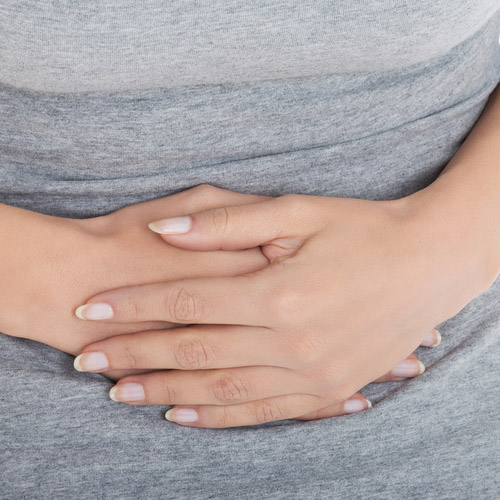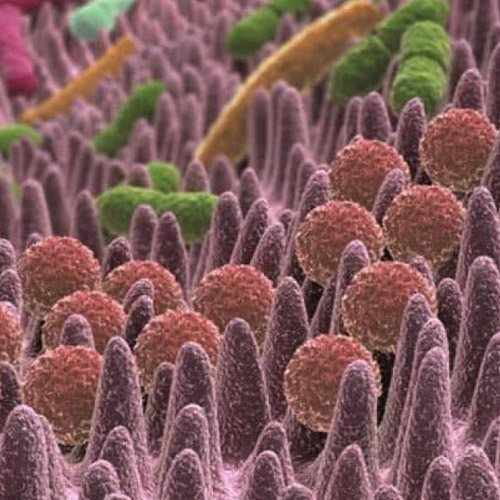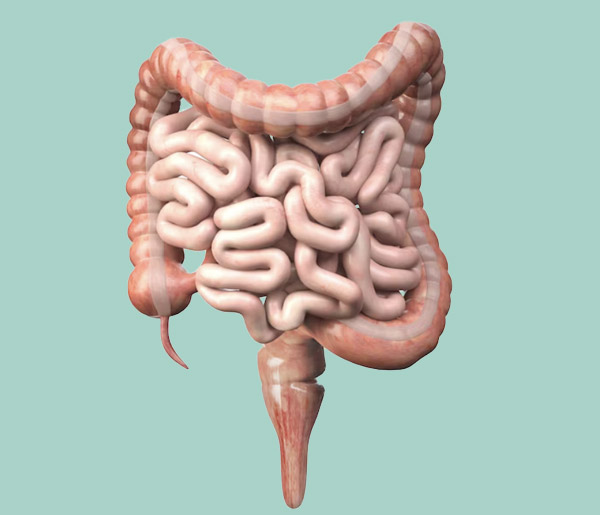
Do you often suffer from abdominal cramps, with a tight feeling in the lower abdomen, accompanied by flatulence that, at times, you just can't seem to hold back?
Meteorism is one of the most common disorders of the intestines and, along with chronic constipation and diarrhea, is one of the absolute most common colonproctological conditions.
It is estimated that at least 10% of the entire world population is affected by chronic meteorism, but this figure is difficult to establish with certainty because the prevalence is most likely significantly under-diagnosed.
So if you too suffer from sudden discharges of flatulence, intestinal spasms and pain, and a feeling of abdominal tightness, continue reading this page: it was written by Dr. Luisella Troyer, Proctologist Surgeon, precisely to help you understand your condition and spur you on to deal with it, starting with the necessary colonproctological examination.
The feeling of a 'bloated belly' is enormously common among the human population, but it often has no certain and detectable clinical pathological signs.
Sometimes, it is just a feeling of the subject, often caused by particularly noticeable states of stress and tension.
Clinically, meteorism is only referred to when there are definite and measurable clinical signs, such as abdominal tension, intestinal spasms, flatulence phenomenon, etc.
All these conditions can vary greatly from subject to subject, and often 'follow' work and life cycles that are difficult to predict.
That is why the examination to ascertain whether or not meteorism is present must compulsorily include a thorough medical history by the physician, who must thoroughly investigate not only the patient's physiological situation, but also ascertain the psychological one.
What is meteorism?

Meteorism is a functional disorder of the large intestine, with exaggerated production of intestinal gas, unevenly distributed throughout the colon.
The origin of the name is, as it almost always is in Medicine, of Greek origin: őľőĶŌĄőĶŌČŌĀőĻŌÉőľŌĆŌā, meaning "lifting, swelling", itself derived from őľőĶŌĄő≠ŌČŌĀőŅŌā "standing on high".
Meteorism is an abnormal and pathological condition of the intestines only when it gives a number of well-defined complaints to the patient, such that it greatly reduces the patient's quality of life.
In fact, under normal conditions, a certain amount of gas is naturally always present in the human colon, roughly 100-150ml evenly distributed, resulting from bacterial fermentation of our intestinal flora.
Thus, we speak of functional meteorism only when this amount not only increases considerably, but is distributed unevenly in the colon, with sections of the colon more dilated by gas and sections that are freer instead.
Why does our intestines constantly produce gas?

The colon, called the large intestine in medical jargon, is the last organ of the long human gastrodigestive tube, which obviously begins at the oral cavity.
The main function of the colon is to reabsorb the fluids in the chyle, that is, the nutrition now deprived of sugars and essential nutrients from the intestinal villi of the small intestine, and thus complete digestion.
The chyle, coming from the small intestine through the ileocecal valve, is slowly reabsorbed of fluids and electrolytes by the colonic mucosa due to the massive presence of lymphatic vessels.
Lymphatic vessels, which permeate the entire intestinal mucosa, absorb fluids and electrolytes from the chyle and then pour them back into the venous circulation, thus turning the chyle into alvo, that is, stool before it is excreted.
However, this transformation process is completed not only by the lymphatic vessels of the mucosa, but also by the incessant action of the bacteria in the colon, called intestinal bacterial flora.
Such bacteria, our friends, live in our intestines in a symbiotic mechanism: they attack the residual polysaccharides in the chyle that are not absorbed by the intestinal villi and 'digest' them, thus preventing them from damaging the mucosa.
The product of their metabolism causes the pound to 'mature' and increase in volume and solidify, turning it into the soft, easy-to-expel alvo, which will then be disposed of by defecation.
Fermenting, our friendly bacteria also produce, as fermentation residues, discrete amounts of gases such as nitrogen, hydrogen, carbon monoxide and methane.
These gases combine with oxygen, which we inevitably ingest by eating, and form precisely the intestinal gases.
Some of these gases are naturally absorbed by the mucosa, released into the venous circulation, and expelled by normal lung ventilation.
Other intestinal gas, on the other hand, is expelled directly from the anus through flatulence.
In a healthy, healthy intestine, therefore, there is always a variable amount of gas present, which is, however, balanced by the mechanisms of mucosal reabsorption and expulsion through the farts.
Meteorism should not be confused with aerophagia or the phenomenon of flatulence.
Aerophagia is poor eating behavior, almost always due to eating meals in too fast or too voracious amode, which in turn causes an over-quantity of airingeritaalong with food.
Such air inevitably ends up in the intestines, where it can cause meteoric conditions.
Flatulence, on the other hand, is the exaggerated (and often, foul-smelling) emission of farts, which become impossible to retain.
This condition can also be a symptom of meteorism, but it is certainly not its cause.
What are the symptoms of meteorism?

The symptoms of meteorism vary greatly from person to person, and are often not clinical states, but perceptions and sensations that may not even have a clinical sign detectable by the Physician.
So keeping this important factor in mind, and considering that the amount of gas in the colon varies greatly depending on the individual, typical symptoms of what is perceived as meteorism are:
- Feeling of a bloated belly;
- Abdominal spasms and cramps;
- Abdominal distension, i.e., bowel hard to touch and palpation;
- Cholic cord, result of abdominal distension;
- Flatulence increased in quantity and often reported as impelling, impossible to retain
All of these symptoms are only partially related to the total volume of gas in the colon (as mentioned earlier, variable): some subjects complain of a 'bloated belly' sensation even with a lower than average amount of gas, while other subjects have no symptoms at all even with much higher than average amounts of intestinal gas.
Rather than the total amount of gases, however, it is much more useful in the clinical setting to know where these gases are present, and their homogeneous or nonhomogeneous diffusion in the colon.
In fact, many of the symptoms of meteorism are due to increased gas pressure in a given sector of the intestine, which suddenly moves, thus creating spasms.
What are the causes of meteorism?

There can be many causes of methodism: the feeling of 'bloated belly', as mentioned earlier, is not a true clinical sign, but a subjective feeling of the patient.
Sometimes, this sensation has no clinical findings, yet it persists: this makes it difficult to establish a real connection with a physiological cause, and this must always be considered at the diagnosis stage.
That being said, the conditions that can lead to functional meteorism, that is, abdominal bloating established with clinical signs, are as follows:
States of agitation and stress
When we become agitated, our brains produce large amounts of cortisol as well as catecholamines (the most famous of which is adrenaline) to relax.
Cortisol relaxes the whole body but instead has an irritative effect on the intestinal mucosa, and causes damage to the microbiome.
Catecholamines, on the other hand, inhibit intestinal peristalsis, and increase gas production by the bacterial flora;
Irritable bowel syndrome
Irritated colon mucosa is much less effective in absorbing intestinal gas, which then accumulates causing meteorism;
Autoimmune diseases of the colon, such as ulcerative rectocolitis or Crohn's disease;
Food poisoning caused by bacteria, viruses, or protozoa;
Lactose or gluten intolerance (celiac disease);
Aerophagia, which is the introduction of an excessive amount of air during meals, often due to eating meals too quickly or consuming excessive carbonated beverages;
Abuse of dairy foods, milk or its derivatives
Lactose is the sugar contained in milk and all its derivatives, and like all polysaccharides it is particularly liked by the bacteria of the intestinal flora during digestion.
The intestinal villi of the small intestine do not completely absorb all of the lactose contained in the chyme, and parts of it therefore remain in the chyle, being attacked by colonic bacteria.
A diet with excessive amounts of fresh milk and dairy products therefore exponentially increases intestinal bacterial fermentation, consequently increasing the amount of gas produced;
Diet with excessive amount of fruit
Exactly like glucose, fructose in fruit is a polysaccharide that is particularly liked by colon bacteria, which increases their fermentation, resulting in an increase in gases produced by their metabolism;
Diet with excessive amounts of legumes
Beans, peas, lentils, soybeans, fava beans, chickpeas, and all other legumes contain large amounts of raffinose: a complex sugar consisting of glucose, fructose, and galactose.
These are all sugars that colon bacteria love, and thus cause hyper-fermentation during digestion;
Bacterial contamination of the small intestine
Bacteria that live symbiotically in our colon, protecting the mucosa of the large intestine and are indispensable for us to complete digestion and turn the chyme into alvo.
However, these bacteria can, under certain conditions, pass beyond the ileocecal valve and expand into the small intestine, giving rise to chyme fermentation phenomena that cause excessive bloating, abdominal pain and, not infrequently, diarrhea.
This contamination of the small intestine by bacteria usually occurs from a diet too rich in carbohydrates;
Diet too rich in fatty meats;
Meals with oversized portions;
As it turns out, there are indeed many causes that can lead to meteorism, and many have a direct connection with diet and, in general, nutrition.
The continuous presence of gas in the human intestines is absolutely normal, and is the result of both the ingestion of airduringmeals and the bacterial fermentation that normally occurs in our intestines.
Our friendly bacteria that make up the intestinal microbiota(there are over 400 types) form the so-called 'bacterial flora,'which is necessary to complete our digestive process.
Bacteria in the colon attack the polysaccharide residues in the chyle, that is, the food now deprived of nourishment by the intestinal villi and, by fermenting, transform it into the alvo, that is, the feces that will then be excreted through defecation.
The fruits of bacterial metabolism are both feces and intestinal gases, composed mainly of methane, hydrogen, nitrogenand carbon monoxide.
These gases are partially reabsorbed by the intestinal mucosa and partially excreted externally through the farts.
How is meteorism diagnosed?
As mentioned just above, the diagnosis of meteorism is very complex, as the feeling of a 'bloated belly' is subjective, and often has no clinical finding.
In general, diagnosing a true state of meteorism requires a specialized colonproctological examination, often accompanied by some specific tests.
In the colonproctology examination, the proctologist must ascertain the true condition of the colon by performing an abdominal examination, which consists of:
- Palpation of the intestine, starting from the cecum down to the descending tract, to ascertain whether colic chord is present;
- Auscultation of the abdomen with phonendoscope, to detect the presence of peristalsis, and ascertain its status;
- Detection of any excess gas in the colon by digital staking maneuver (the Physician can tell if there is massive presence of air in one place in the colon by sensing the rumbling on finger staking)
However, these maneuvers may not be sufficient to arrive at a definite diagnosis of meteorism, or its underlying cause.
In fact, it is often necessary to supplement the colonproctological examination with some specific examinations, such as:
- The Breath Test, which allows measurement of food intolerances (especially lactose) and malabsorption syndrome;
- Testing for celiac disease to ascertain the presence of gluten intolerance
These examinations, combined with the abdominal examination and a thorough medical history, should enable the Proctologist to arrive at the right diagnosis not only of the meteorism (which is a symptom), but of the upstream cause that triggered it.
How can meteorism be treated?
Treatment for meteorism is totally related to its underlying cause.
In the event that it is caused by excessive stress or continuous states of agitation, it is necessary to refer the patient to psychological or even psychiatric therapies designed to calm him or her and to attempt, where possible, a return to conditions of serenity.
In case the meteorism was caused instead by the wrong diet, containing too many polysaccharide sugars, or excessive consumption of carbonated beverages, the patient must be reeducated to the right diet.
Nutrition that must also include decreasing or abolishing, at least for certain periods, fermenting foods such as dairy products, or legumes.
If, on the other hand, the meteorism is caused by irritable bowel syndrome, it is imperative to try to restore the bowel to at least acceptable functionality, again acting on diet and supplementation of the new probiotics available on the market, as well as phytotherapeutic drugs with undisputed calming and inflammatory properties of the intestinal mucosa.
The level of stress and tension, in individuals with IBS, must also be kept under control, however, and eventually brought back to acceptable levels.
Patients with established celiac disease, a condition for which there is still no specific cure, must radically and permanently change their diet, excluding any food containing gluten.
Patients with Breath Test positivity should also eliminate, or at least drastically reduce, consumption of milk and dairy products.
These dietary changes can be temporary or permanent (as in the case of patients with celiac disease), and should still be framed within a gut rehabilitation pathway, with periodic medical checkups.
Over-the-counter products for 'bloated belly'? Not always helpful
The perceived symptom of 'bloated belly' is extremely common among people around the world, and it is not always linked to meteorism by irrefutable clinical signs.
As mentioned earlier, the sensation of having a bloated intestine with air can vary greatly from person to person, and is not strictly related to the amount of total gas present in the colon (which, as mentioned, should still be there physiologically).
Sometimes, some states of 'bloating' are momentary, and related perhaps to exquisitely temporary conditions, such as a mild period of stress or a small change in eating habits.
Even individuals with chronic constipation may have the sensation of abdominal tightness and bloating, without having overt meteorism.
This wide variety of symptoms and perceptions of them has meant that the 'bloated belly business' has invaded the health care market, with over-the-counter products often of dubious usefulness.
Not unlike the abnormal amount of creams, ointments, and ointments for hemorrhoids (almost all of which are completely useless, and in any case not curative but palliative), there are also a simply exaggerated amount of supplements or pseudo-pharmaceuticals on the market for 'bloated belly', which are often reduced to being mere plant extracts but without any phytotherapeutic principles.
It should be remembered that functional meteorism cannot be self-diagnosed, nor can it be treated by self-prescription of over-the-counter products (of any kind).
Meteorism, when established, is diagnosed only by the Colonproctologist, and always has a functional motivation: a food intolerance, a pathological condition of the colon, an established state of emotional stress, an incorrect or otherwise unbalanced diet.
These are all problems that require medical expertise, and cannot be solved on their own by buying over-the-counter products.
That is why, in case the symptoms of meteorism are suspected, it is important to perform a specialized colonproctological examination, which must compulsorily precede any kind of therapy and intake of medications or supplements.
Do you suffer from meteorism in Dubai? Dr. Troyer can help you

Dr Luisella Troyer is a Proctologist Surgeon in Dubai, with thirty years' experience in colon pathologies and dysfunctions that can lead to a state of full-blown meteorism.
Dr. Troyer can help you diagnose your state of meteorism and direct you towards effective rehabilitation therapies for your intestine, so that you feel better, free from the feeling of bloated belly and abdominal tension.
your proctologist surgeon of excellence in Dubai

Dr. Luisella Troyer is an italian Vascular Surgeon, specialised in Proctology and Colonproctology, operating in Dubai.
In the modern, well-equipped clinic in Dubai, Dr. Troyer provides specialist medical examinations in Vascular Surgery and Colonproctology, to diagnose and solve proctological problems such as:
- Pathological haemorrhoids;
- Haemorrhoidal thrombus;
- Anal fissures;
- Anal warts;
- Peri-anal abscesses and anal fistulas;
- Chronic constipation;
- Irritable Bowel Syndrome;
- Faecal incontinence;
- Rectocele;
- Descending perineum syndrome
In the clinic in Dubai, Dr. Troyer also performs minimally invasive treatments, such as the treatment of prolapsed haemorrhoids with the innovative sterilised air-stabilised scleromousse.
For her proctological diagnoses and examinations, Dr. Troyer uses the excellence of diagnostic technology, such as the modern high-definition videoproctoscope for Electronic Endoscopic Videoproctoscopy.
All operators and assistants of Dr. Troyer speak English, Arabic and Italian.
So remember...
- THE FEELING OF 'BLOATED BELLY' IS VERY COMMON IN THE HUMAN POPULATION, AND MAY BE A SYMPTOM OF A CLINICAL CONDITION SUCH AS METEORISM;
- THE FEELING OF 'BLOATED BELLY' REPORTED BY THE PATIENT DOES NOT ALWAYS HAVE REAL CLINICAL SIGNS THAT CAN BE RECONTRACTED BY THE PHYSICIAN;
- THERE IS PHYSIOLOGICALLY ALWAYS A CERTAIN AMOUNT OF GAS PRESENT IN THE HUMAN INTESTINE, WHICH CANNOT BE COMPLETELY ELIMINATED;
- THE BACTERIA IN THE INTESTINAL MICROBIOTA, WHICH LIVE IN SYMBIOSIS WITH US, NATURALLY PRODUCE GASES SUCH AS METHANE, HYDROGEN, CARBON MONOXIDE AND NITROGEN, THE RESULT OF THEIR METABOLISM;
- THE AMOUNT OF GAS IN THE COLON CAN VARY FROM PERSON TO PERSON, AND IS NOT NECESSARILY A CAUSE OF METEORISM;
- MORE THAN THE TOTAL AMOUNT OF GAS IN THE INTESTINE, IT IS IMPORTANT THAT IT BE DISTRIBUTED EVENLY THROUGHOUT THE COLON, AVOIDING 'BUBBLES' OF MORE CONCENTRATED GAS THAT CAN LEAD TO SPASMS AND ABDOMINAL TENSION;
- THE COLONIC MUCOSA IS ABLE TO PARTIALLY ABSORB THE GASES IN THE INTESTINES, AND THOSE THAT ARE NOT ABSORBED ARE MECHANICALLY EXPELLED THROUGH FARTS;
- ANY HUMAN BEING EMITS FARTS AT VARYING INTERVALS, AND IT IS CONSIDERED NORMAL;
- WHEN THE FARTS BECOME MORE FREQUENT THROUGHOUT THE DAY, IT IS CALLED FLATULENCE;
- AS WE EAT, WE ALSO PHAGOCYTIZE A CERTAIN AMOUNT OF AIR, WHICH INEVITABLY ENDS UP IN THE INTESTINES;
- AEROPHAGIA IS THAT MISBEHAVIOR THAT INTRODUCES MUCH MORE AIR THAN NECESSARY DURING MEALS, WHICH CAN LEAD TO METEORISM;
- STATES OF ANXIETY AND STRESS, CONSTANT TENSION AT WORK OR IN THE FAMILY, CONFUSED OR DIFFICULT EMOTIONAL SITUATIONS CAN INCREASE THE PRODUCTION OF ADRENALINE AND CORTISOL, DISTURBING THE INTESTINAL MUCOSA AND PROMOTING METEORISM;
- A DIET OVERLOADED WITH LEGUMES CAN CONSIDERABLY INCREASE INTESTINAL BACTERIAL FERMENTATION, CAUSING METEORIC CONDITIONS;
- A POOR DIET, TOO RICH IN CARBOHYDRATES, CAN MAKE THE BACTERIA IN THE INTESTINAL MICROBIOTA HYPER-FERMENT, AND LEAD TO CONTAMINATION OF THE SMALL INTESTINE, LEADING TO METEORISM;
- PATHOLOGICAL CONDITIONS SUCH AS CECLIACHIA OR LACTOSE INTOLERANCE CAUSE VIOLENT BOUTS OF METEORISM;
- SOME AUTOIMMUNE DISEASES SUCH AS CROHN'S DISEASE AND ULCERATIVE RECTOCOLITIS DAMAGE THE COLONIC MUCOSA, WHICH BECOMES LESS EFFECTIVE IN ABSORBING INTESTINAL GAS;
- THE DIAGNOSIS OF METEORISM IS NOT EASY, AS THE SYMPTOMS OFTEN REPORTED BY THE PATIENT HAVE NO CLINICAL EVIDENCE

This article was revised and updated by Dr. Luisella Troyer on:
Tuesday 4 February, 2025
Dr. Luisella Troyer is a Vascular Surgeon, specialising in Vascular Surgery and Proctology.
Since her training as a resident, Dr. Troyer has been interested in the study and treatment of proctological pathologies, especially haemorrhoids and haemorrhoid prolapses.
In the course of his practice as a Surgeon, he has accumulated about 5000 operating theatre hours as a first operator, of which about 120 were Milligan-Morgan haemorrhoidectomies.
He is one of the first Doctors to have studied and experimented with scleromousse therapy for pathological haemorrhoids, which he has judged to be the treatment of choice for the non-traumatic treatment of haemorrhoidal prolapses, with resolution statistics of over 95% and therefore often comparable with surgical access.

















